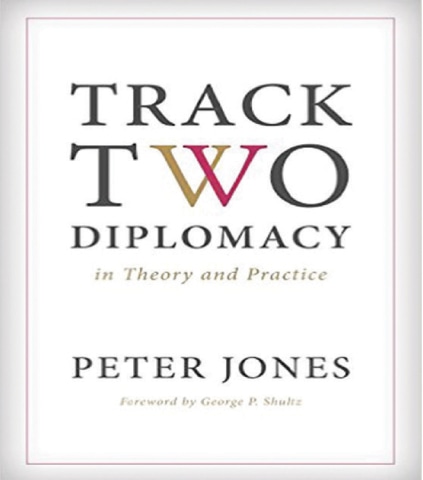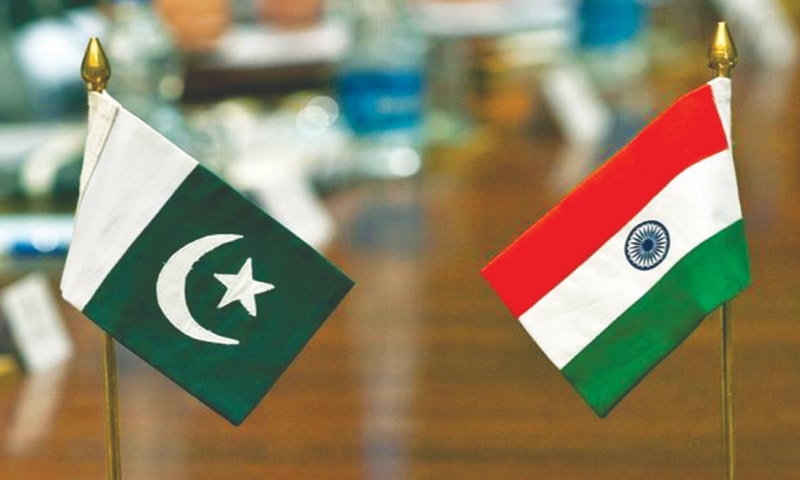Ever since the end of the Cold War, and the system of alliances that it had spawned, interstate and intra-state conflicts have come to occupy centre stage more and more in considering questions of global security and stability.
To the Palestine, Kashmir and other Indo-Pak disputes and Cyprus (recognised as one of the longest seemingly intractable conflict) have now been added many more conflicts — such as those in Rwanda, Somalia, the Central African Republic, Nigeria, Syria, Libya, Iraq, the sectarian divide in the Islamic world, the rise of fundamentalist fervour in other religions — Hindutva in India, Buddhism in Sri Lanka and Myanmar, and extremist interpretations of Islam in Pakistan and other Muslim majority countries. The long and growing list of intra and inter-state conflicts has made ‘conflict resolution’ an increasingly important part of the study of international relations.
Culling through the vast amount of thoughtful scholarly work one finds general agreement on what processes and steps need to be followed in a bid to resolve conflicts.
Initially it is ‘conflict management’ or putting an end to violent conflict by limiting the means that maintain it. This is essentially mitigating and containing the conflict. ‘Conflict settlement’ is about helping the opposing parties reach an agreement through negotiation and bargaining. ‘Conflict resolution’ is about eliminating the causes of conflict by getting the parties to engage in joint problem solving.
‘Conflict transformation’ is about effecting a change in the relations between conflicting parties. This would be a long-term effort which addresses the deeper structural dimensions of the conflict and brings about social changes at different levels of society. Finally, preventing future conflicts comes about by helping the parties to create the trust and interdependence that would eliminate the possibility of a resurgence of conflict.
While the global community can play an important role in limiting the availability of the means of conflict, all other steps for conflict management, settlement, resolution or transformation need the active participation of the parties to the conflict. Outside forces can influence the parties but the final decisions have to be those of the parties concerned and in many cases at the official level there is intransigence rather than the needed flexibility.
Peter Jones’s book gives new insight into the diplomatic channel known as Track Two
It is here that assistance can be provided by Track Two — an unofficial channel for the exchange of ideas and proposals unconstrained by the official stance of the parties concerned. Track Two diplomacy has been defined as “the bringing together of professionals, opinion leaders or other currently or potentially influential individuals from communities in conflict without official status to work together to understand better the dynamics underlying the conflict and its transformation from violence (or potential violence) to a collaborative process of peace building and sustainable development”.
This is of course not the only definition of Track Two as professor Peter Jones in his book Track Two Diplomacy in Theory and Practice shows in his scholarly survey of the existing literature on Track Two particularly, but also on the various theories on conflict resolution. He points out that Track Two should not be seen as an activity designed to address only a specific issue between two parties since there are also regional security problems and problems pertaining to other fields that could benefit from a Track Two exercise.
The book that the author says was 20 years in the making is extensively researched — the bibliography covers 20 pages in a 170-page book while the notes take another 35 pages — and clearly draws upon his own experience of many years as a facilitator of Track Two dialogues in many parts of the world.
There has been scepticism about the value of Track Two and this is reflected in George Schultz’s foreword in which he states that while he was US secretary of state he was “leery of Track Two suspecting that it would get in the way of official diplomacy.” Having been exposed to Track Two more fully he now believes that properly done Track Two does not get in the way of Track One but complements it.
While the global community can play an important role in limiting the availability of the means of conflict, all other steps for conflict management, settlement, resolution or transformation need the active participation of the parties to the conflict.
In Pakistan, over the past few years, this nomenclature for a spate of meetings between members of Pakistan’s civil society with their counterparts in India and Afghanistan has gained notoriety. Many of these meetings are seen to be no more than an opportunity for retired government officials, journalists and in and out of office politicians to engage in discussions, which largely follow the pattern of official discussions, and prove to be equally unproductive. There is a certain amount of truth to this if productivity is defined as being the immediate generation of problem-solving proposals that are accepted by both sides of the conflict and lead to formal agreements.
This, while being the ideal to be aimed for, is not what most proponents pragmatically expect from Track Two discussions and certainly has not been the result of the Indo-Pak, Pak-Afghan or other Track Two meetings that I have been part of. It can, however, be said with a measure of confidence that not only has it promoted a better understanding between the participants but some elements have become part of official thinking, if not policy.

In his survey of what has been said about the purpose that Track Two can serve, Jones notes the view which states in part, that:
“Track Two processes can serve as a mechanism for the development of policy advice to governments, particularly as regards new issues or longer-term questions. In this sense, Track Two, if accepted by regional governments, can serve as a kind of reserve of intellectual capacity.”
Track Two processes provide a ‘laboratory’ for the development and testing of ideas. New concepts or specific proposals can be debated in an atmosphere within which governments are not committed.
If only these purposes are served Track Two would have justified the expense and the effort involved. Track Two is not, as Jones says in the concluding chapter of his book, a panacea for the world’s ills. It cannot by itself make peace. What it can do is help people develop new ways of understanding and addressing a deep-seated conflict.
For serious students of international relations seeking new ways of addressing today’s issues this exploration of conflict resolution theories and their practical application is a must-read. For the general reader this will open the doors to a little known aspect of the study of international relations.
The reviewer is a former foreign secretary.
Track Two Diplomacy in Theory and Practice
(POLTICS)
By Peter Jones
Stanford University Press, US
ISBN 978-0804794060
256pp.















































Dear visitor, the comments section is undergoing an overhaul and will return soon.